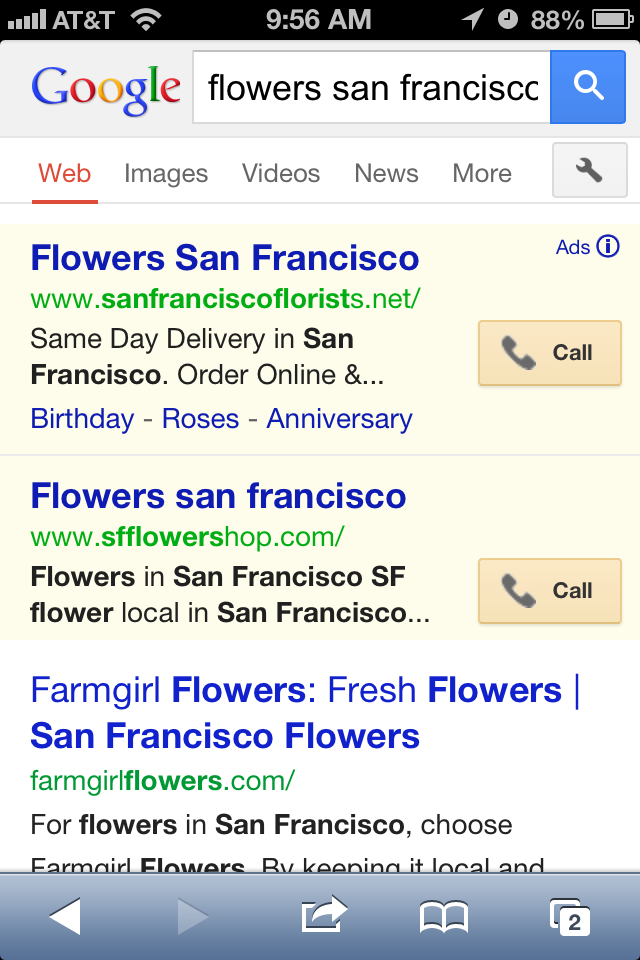It is surprising the market that has emerged from mobile devices. Ever since Steve Jobs unveiled the first iPad back  in 2010, there has the the general trend that more and more people are ditching their computers and laptops when it comes to surfing the internet and resorting to their tablets, mobiles and portable devices. This should not really come as a surprise. The surprise is that many advertisers are not adapting their PPC campaign to take full advantage of the mobile traffic market. What needs to be made apparent is that the traffic that comes from laptops and computers is very different to that which comes from portable devices. Therefore, the PPC campaigns should reflect this.
in 2010, there has the the general trend that more and more people are ditching their computers and laptops when it comes to surfing the internet and resorting to their tablets, mobiles and portable devices. This should not really come as a surprise. The surprise is that many advertisers are not adapting their PPC campaign to take full advantage of the mobile traffic market. What needs to be made apparent is that the traffic that comes from laptops and computers is very different to that which comes from portable devices. Therefore, the PPC campaigns should reflect this.
To understand this, picture a ‘bog standard’ PPC campaign:
- The web user sees the advert either in search results or on a publisher’s website.
- After clicking onto the advert, the web user will land onto the designated landing page.
- After reading and interacting with the landing page, the web user converts.
This is the whole principle of how PPC basically works at its simplest. For laptops and computers, this has worked pretty well over the last decade and will continue to work very well. On the other hand, for mobiles, this will not work as well.
It is generally harder to input function into a portable device as compared to a laptop or computer. Therefore, if the web user has to click, scroll and input text for a desktop PPC campaign, s/he will not mind as much as compared to someone who will have to do the same to convert on a mobile device.
For this reason, the general structure of a mobile PPC campaign should be:
- The web user sees the advert either in search results or on a publisher’s website.
- An ad extension within the advert enables the web user to perform the conversion the advertiser wants in one tap.
This should be the way forward for mobile PPC campaigns. Mobile devices enable the use of call extensions (only for smartphones), map extensions, app extensions and so on. Therefore, instead of doing the conversion on the landing page, you can make the web user do it on the advert itself.
The less steps it takes to perform a conversion, the higher your conversion rate will be. By removing the landing page altogether from the conversion means:
- You have one less element in your campaign the web user has to interact with.
- You have one less element in your campaign that can contain mistakes which could reduce the performance of your campaign.
Therefore, whenever you can use an ad extension for mobile PPC, I urge you to try and use it! The results should speak for themselves as compared to a similar campaign adopting the desktop PPC structure.




You must be logged in to post a commentLogin